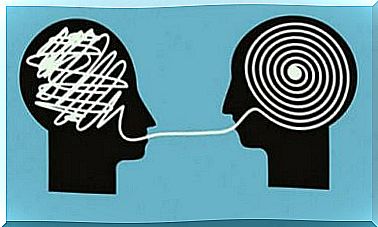Learn How To Control Stressful Situations

Learning to control stressful situations is almost a survival strategy. Mathematician John Lubbock used to say that a day of worry is more exhausting than a week of work, and it is true. The mental energy that you use during those situations invades you with enormous pressure, anxiety and anguish.
On the other hand, you should keep in mind something very important. The ability to face a situation and cope with stressful episodes varies greatly from person to person. Some people treat reality positively. They look at life from a realistic perspective. Therefore, they are more resistant to every challenge. They can even find opportunities for growth in these challenges.
Others, on the other hand, worry about everything. Thus, what causes a lot of stress for some can be an easy situation for someone else, and they feel absolutely no stress or anguish. It depends on your previous experience and some psychological resources. Even if you do not already have them “factory installed”, you can learn them and make them yours.
Albert Ellis showed in his famous book How to Control Anxiety Before It Controls You that stress and anxiety are not exempt from having a positive side to a certain degree. They tell you that you need to change certain things. Thus, daring to do so will improve your well-being.

The keys to controlling stressful situations
You know that it is not easy to control a stressful situation. What does it really mean to say that something is “stressful”?
Although stress is in the eye of the beholder, there are some situations that are stressful for everyone. Having to go through surgery, deal with legal issues or even encounter new projects is enough to make people feel that they are under pressure.
As an example , there are two important factors when you know the patient’s coping resources:
- How they perceive a complex situation (first impression).
- The interpretation they give regarding their ability to handle a stressful situation (secondary evaluation).
They should preferably be adjusted in a healthy way. If you can see a solution to the challenge within reach, then you have the resources to deal with it. Let’s look at some resources that you should take advantage of to control stressful situations.
It’s not about making stress go away, it’s about dealing with it
You can not live without anxiety and stress. These mechanisms have guaranteed human survival, generated progress and acted on emotions and behaviors in a way that allows for great change. As a result, there are some things you need to know about stressful situations:
- Stress is in your favor. It helps you learn new adaptive behaviors.
- You do not have to make stress go away; you just have to control and regulate it.
- You need to find the strategies that best suit your needs and personality to regulate stress. This process takes time and requires commitment.
There are three specific dimensions to dealing with stress.

Evaluation-centered strategies: a key to controlling stressful situations
How do you see that challenge, problem or complicated situation in front of you? From the moment you notice these situations, your thoughts, feelings and behavior determine the outcome. Statements such as “this is too much”, “this is terrible” or “this is a disaster” will end up making the stress and anxiety even more intense.
You need to pay attention to how you view the situation in front of you. This does not mean that you have to be thoughtlessly positive or that you have to be dramatic about it. Try to think of these statements instead:
- I understand that it is normal to be stressed. I have to deal with it.
- I know this situation is difficult. It may not go the way I want, but I will learn about it step by step.
Emotionally centered strategies
As you know, the emotional level is very important when it comes to controlling stressful situations. Your emotions can give you wings to fly in the middle of a stressful situation, or they can force you into a corner with fear and denial. Thus , it is important to take control of your inner universe as much as you can so that things work to your advantage.
How? These are the keys:
- Identify the feelings that you feel.
- Rationalize. Find out what irrational thoughts are feeding these emotions.
- Practice breathing and relaxation exercises. Practices like mindfulness can help you.
Problem-centered strategies
You have learned about the importance of evaluating a problem in a realistic way and avoiding ideas that invalidate you or make you feel anguished. You also know that you have to control your emotions in order for things to go your way. So what remains to be learned about controlling stressful situations?
Having a plan may well be the most relevant strategy:
- Develop strategies that allow you to face the problem in the best possible way.
- Create your own “survival kit” so that you are prepared for anything that may happen.
- If you are stressed over a job interview, then prepare. If it is a doctor’s appointment, you can practice relaxation and visualize any situation that may occur. However, if you are stressed about a business deal, you can train yourself to learn communication techniques.
We can conclude that there are going to be many stressful situations in your life. It is common to be afraid, but the key to overcoming these situations is to do something even if you are afraid. This will help you get through anything.









